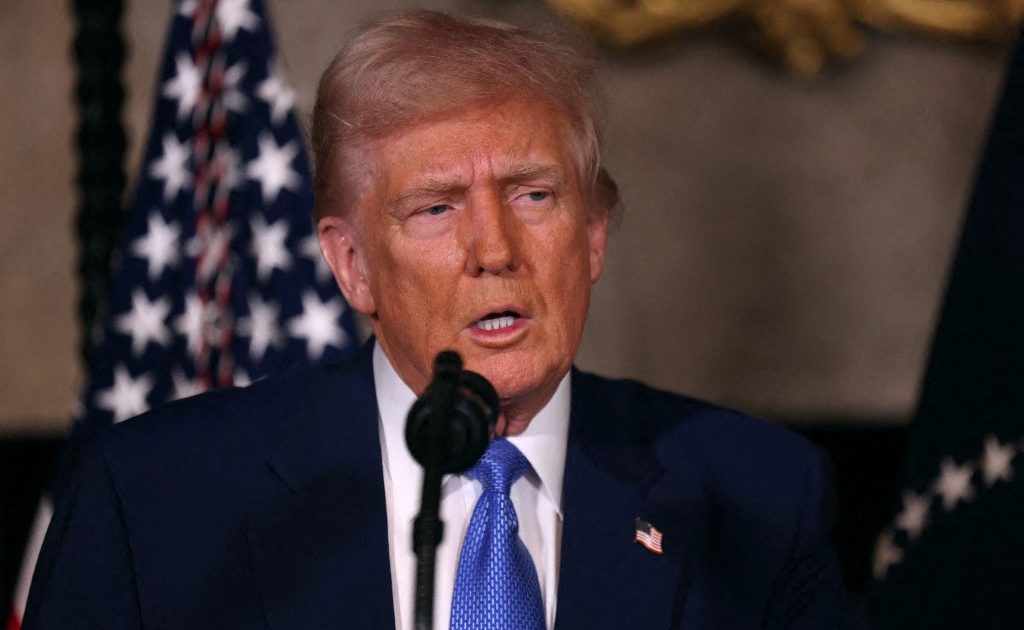The global financial markets experienced a significant rebound on Wednesday, fueled by reassuring statements from US President Donald Trump regarding the Federal Reserve chair and US-China trade relations. Markets had been reeling earlier in the week following Trump’s criticisms of Federal Reserve Chairman Jerome Powell, whom he labeled a “major loser” and “Mr. Too Late” for not lowering interest rates aggressively enough. Concerns escalated when Trump hinted at the possibility of dismissing Powell, a move that analysts feared would undermine the central bank’s independence and trigger a global financial crisis. However, Trump subsequently clarified that he had “no intention” of firing Powell, although he still expressed his desire for lower interest rates. This clarification, coupled with positive developments on the trade front, provided a much-needed boost to investor confidence.
The escalating trade war between the US and China had further exacerbated market anxieties. The US had imposed tariffs of up to 145% on certain Chinese goods, with China retaliating with its own tariffs reaching 125% on US imports. This tit-for-tat tariff battle had disrupted global supply chains and dampened economic growth prospects. However, Trump’s acknowledgement that the US tariffs were “very high” and would “come down substantially” signaled a potential de-escalation of the trade conflict, which was further reinforced by White House Press Secretary Karoline Leavitt’s statement indicating progress towards a deal. These developments, combined with Chinese President Xi Jinping’s acknowledgment of the detrimental impact of tariffs and his spokesperson’s affirmation that “the door for talks is wide open,” significantly improved market sentiment.
The positive shift in tone from both the US and China sparked a broad rally across global equity markets. Asian markets, including Hong Kong, Tokyo, Sydney, Seoul, and others, witnessed substantial gains, with Hong Kong particularly buoyed by a surge in tech giants like Alibaba and Tencent. European markets followed suit, with London, Paris, and Frankfurt all experiencing sharp increases. Taipei’s market also jumped over four percent, largely due to a significant rise in chip manufacturer TSMC’s share price. This global rally extended to Wall Street, where all three major indexes closed over two percent higher. The surge in market optimism resulted in a retreat from safe-haven assets like gold, which had earlier hit a record high, and a recovery in the US dollar against major currencies.
The market’s positive reaction underscores the significance of the Federal Reserve’s independence and the detrimental impact of trade uncertainty on investor confidence. The earlier sell-off reflected concerns about potential political interference in monetary policy and the economic consequences of a protracted trade war. Trump’s reassurances regarding Powell’s position and the prospect of tariff reductions effectively allayed these concerns, prompting investors to re-engage with riskier assets. This episode highlights the sensitivity of financial markets to geopolitical risks and the importance of clear communication from policymakers to maintain stability.
Despite the positive market reaction, it’s important to note that underlying economic risks remain. The International Monetary Fund (IMF) recently lowered its global growth forecast, citing the negative effects of trade tensions. While Trump’s statements have eased immediate concerns, the complexities of the US-China trade relationship and the potential for renewed tensions remain. Furthermore, the global economy faces other challenges, including Brexit uncertainties and ongoing geopolitical risks, which could impact future market performance.
The market’s response primarily reflects a relief rally fueled by the avoidance of potentially catastrophic scenarios: the dismissal of the Federal Reserve chair and an uncontrolled escalation of the trade war. While the positive developments are welcome, the long-term trajectory of both the global economy and financial markets remains subject to several factors, including the successful negotiation of a trade deal, the Federal Reserve’s monetary policy decisions, and overall global economic conditions. The market’s sensitivity to these factors necessitates continued monitoring and cautious optimism.














